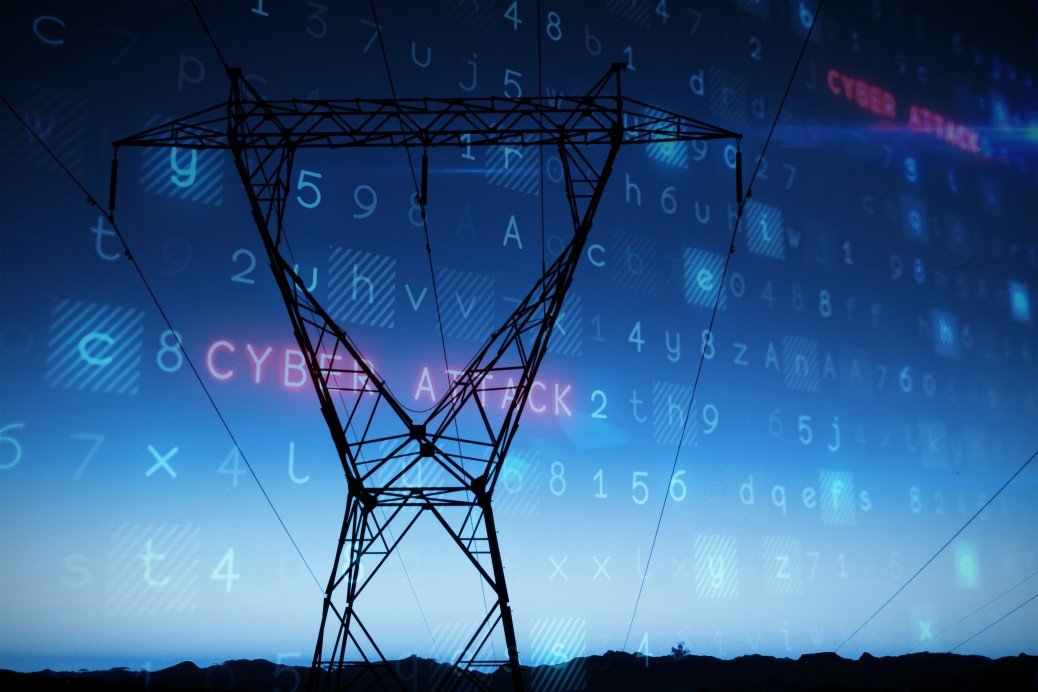Are attacks on power grids an emerging terror threat?
Power grids are increasingly under attack (Photo Credit: https://www.energymagazine.com.au/wp-content/uploads/2020/05/shutterstock_1176630334-1038x692.jpg)
Imagine you are sitting in your room during winter, warmed by an electrically-powered heater, using your phone connected to a charger, the light shining on your desk from your lamp, and realizing you need to charge your laptop after you've spent most of the day using it in school. But suddenly, the lights go out, same goes to your appliances and soon enough your entire home and building is plunged into darkness. You would probably either panic or think it just happened because of an accident. But what if I told you that it happened deliberately?
If you've read the recent news, you really can’t help but find yourself seeing a common trait between the lines of the headlines. In Ukraine, Russian missiles have been systematically striking key power grid infrastructure, rendering millions of Ukrainians without electricity during a cold and dark winter. In Germany, 25 Qanon inspired individuals were arrested for planning to overthrow the government. The group had planned to destroy the country's power grid, after which they would use iridium-powered phones to maintain communication.". And in the United States, an uptick of attacks on local power stations have left thousands of homes without power, especially one in North Carolina, in which shootings at two Duke Energy substations in December knocked out power for 45,000 residents.
See a trend? On one hand, you could argue these are random, isolated terrorist attacks, loosely connected only by the choice to target power stations, and that this is therefore not an issue. But as the journalist and renowned political commentator Keith Olbermann noted, “I don’t want to make more of this than it deserves and I genuinely hope I’m being paranoid about this but I’m getting the same skin crawling feeling as we piece together what we didn’t piece together before 9/11.”
Power grid attacks being used by rogue individuals or states can control or disable the power grid and bring disastrous implications. Through strategic targeting, attackers can locate special power stations that provide services to the entire country, commit attacks and disable an entire nation’s energy system to fulfill a group or an individual’s ignorant aims like taking down the government (for example, Germany’s coup plotters) by attacking critical infrastructure. In the United States domestic extremists have been shooting, sabotaging, and vandalizing electrical grid equipment like power grids to sow unrest. According to Politico, the numbers show the cumulative attacks on power grids in 2022 have already surpassed all previous years. Meanwhile, physical attacks aren't the only method for terrorists to destroy power systems—these power grids have numerous vulnerabilities for black hat hackers to exploit and damage. For example, hackers can use ransomware attacks to force governments and businesses to pay a certain amount of money in order for them to get their electricity back.
Some might argue about the feasibility of such attacks, or brush off these concerns by citing existing defenses against them like backup generators, firewalls, and high security near the premises. Others might question how long such attacks last; it’s highly unlikely such an attack can shut down a country's power forever. And, in the most common scenarios where the power goes down for only a little while, there are not any serious long-term impacts. But the main argument doubters might pursue is the lack of real-life examples. During the author’s research, many headlines on the increase of power grid attacks stem from this year, especially from analytical articles written by journalists in response to Russia’s attacks on Ukraine and headlines on power grid attacks in the United States that have received an underwhelming response. As a response, the writer would argue that if readers hypothesize the potential consequences of such an event and the high frequency these events are popping up on the news, this issue should be a genuine concern for everyone involved.
If you think being unable to charge your laptop due to a power grid failure is the worst case scenario, think again. Let’s imagine such a scenario happening in Hong Kong … A rogue group locates the major power stations and finds a way to shut them all down at the same time. Modern day metropolises like this city run on electricity; after such an attack, digital payments using Octopus, credit cards, Alipay and WeChat Pay will be instantly useless as transactions require an electronic response. Stock markets will crash as normal trading cannot resume when everything is highly digitalized on computers, and based on Japan’s experience in 2020, even the slightest glitch can have devastating consequences for the local economy, while transportation like the MTR will cease to function as the electronic systems that organize train schedules and power them stop. For hospitals, the situation could mean life or death, as machines like ventilators are unable to work since they run on electricity from the power grid. Even though many hospitals have backup generators if such incidents happen, for underfunded hospitals and especially those in developing countries, the worst case scenario, patients could die because of these senseless attacks. After a few hours, the lights finally turn back on, but the consequences have already been made, and there is no guarantee that that would be the last.
This doesn’t mean we are defenseless against attacks on our power grids and you should panic over this. Power and electrical companies should be more aware of these threats and work to boost cybersecurity and physical security around their infrastructure, while governments should take energy security seriously and stop treating potential attacks as hypotheticals. If, like many instances in history, people ignore genuinely harmful threats lurking in the distance, the consequences could be catastrophic.
